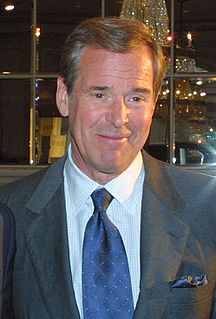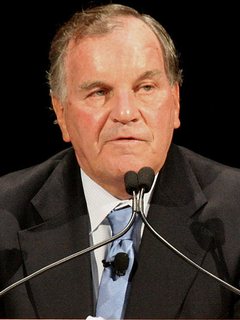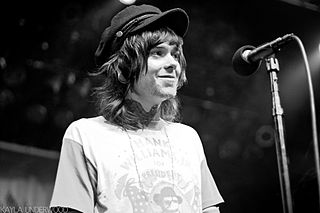A Quote by David Bowie
Capitalism can be alright, I mean Karl Marx didn't live to see what Roosevelt did with that Depression. He pulled everybody out of that Depression and everybody hated Franklin Roosevelt. He got into office four times. One after the other, with everybody saying, he can't get in again. Everybody voted for Roosevelt four times and he did a hell of a lot.
Related Quotes
After World War II the Republicans - the Wall Street crowd - were very worried about a depression coming back. They hated Franklin Roosevelt in that crowd, my father among them. And there was a great fear in '46 that we'd fall back into the pits. And they always wanted to break up the Roosevelt legislation.
I can't tell you how many times at the breakfast table my dad would curse out Franklin Roosevelt. I love my father. He was an intelligent man, but he really didn't like regulations of the Roosevelt style, or the taxes. He was an Dwight Eisenhower man. And that's what Eisenhower did, committed to breaking down the program.
The government is now in a position to do what Franklin D. Roosevelt did during the Great Depression of the 1930s - use a crisis of the times to create new institutions that will last for generations. To this day, we are still subsidizing millionaires in agriculture because farmers were having a tough time in the 1930s.
This is a story about four people named Everybody, Somebody, Anybody and Nobody. There was an important job to do and Everybody was asked to do it. Everybody was sure Somebody would do it. Anybody could have done it, but Nobody did it. Somebody got angry because it was Everybody’s job. Everybody thought Anybody would do it, but Nobody realized that Everybody wouldn’t do it. It ended up that Everybody blamed Somebody when Nobody did what Anybody could have done.
On international relations, Eleanor Roosevelt really takes a great shocking leadership position on the World Court. In fact, it amuses me. The very first entry in her FBI file begins in 1924, when Eleanor Roosevelt supports American's entrance into the World Court. And the World Court comes up again and again - '33, '35. In 1935, Eleanor Roosevelt goes on the air; she writes columns; she broadcast three, four times to say the US must join the World Court.
The crisis [the Great Depression] discovered a great man in Franklin Roosevelt...None too soon he has carried America forward to the second stage of democratic realization. His New Deal involves such collective controls of the national business that it would be absurd to call it anything but socialism, were it not for a prejudice lingering on from the old individualist days against that word...Both Roosevelt and Stalin were attempting to produce a huge, modern, scientifically organized, socialist state, the one out of a warning crisis and the other out of a chaos.
And he [Franklin Roosevelt] got the votes of every southern white voting state in the country and wouldn't have been elected president once, let alone four times, if he hadn't. Now, at the same time he acquired over the years a reputation for being sympathetic to blacks, and he got their votes, heaven knows.
In the great depression, things could only be set right by causing the idle plant to work again . . . Roosevelt . . . spent billions of public money and created a huge public debt, but by so doing he revived production and brought his country out of the depression. Businessmen, who in spite of such a sharp lesson continued to believe in old-fashioned economics, were infinitely shocked, and although Roosevelt saved them from ruin, they continued to curse him and to speak of him as 'the madman in the White House.' . . . [It's one more] striking example of inability to learn from experience.



































